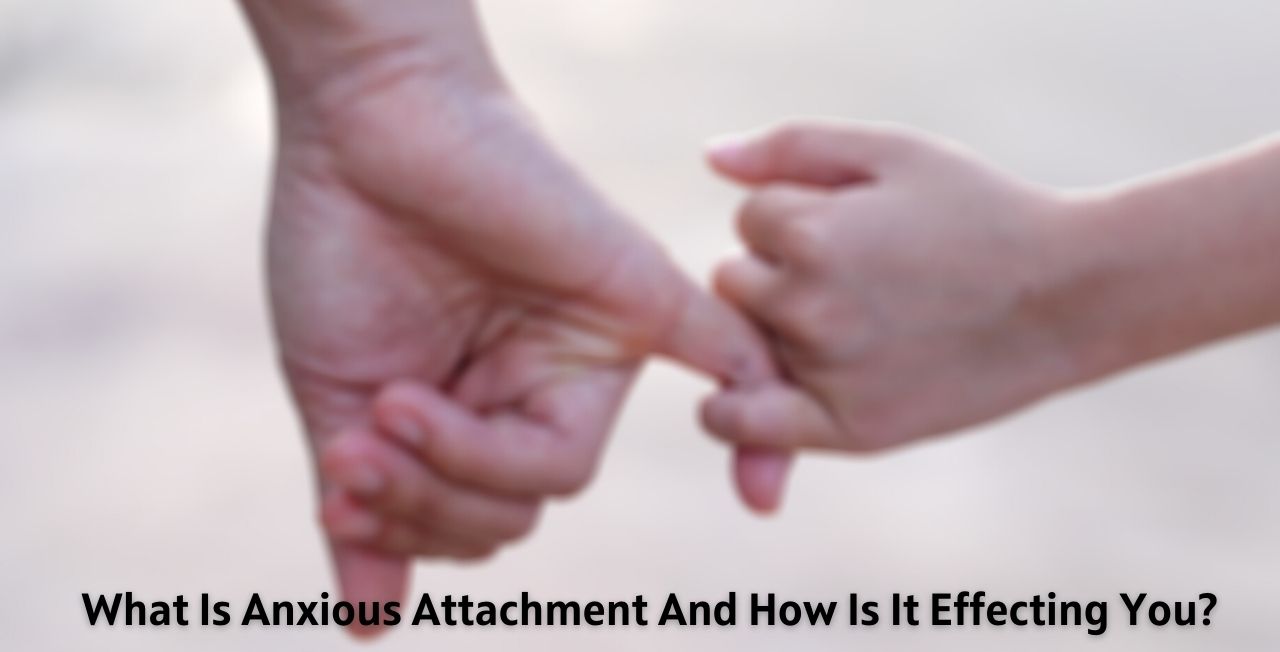Anxious attachment is born out of inconsistent parenting during childhood and can shape the way a person behaves during adulthood.
We all have heard of the term “attachment issues.” Broadly speaking, it’s associated with people who can’t let go of certain things, persons, etc. They get highly anxious when separated from their favourite entities. If we get into the specifics of this behaviour, it is defined as anxious attachment and is shaped during childhood.
Understanding the meaning and importance of attachment
Before we get into what anxious attachment is, it is first important to understand why attachment itself, is vital to human existence. Humans are born with survival instincts and one of the most essential ones is for them to be independent and self-reliant. In order to do that, they need to be nurtured by their caregivers, who in most cases, are the parents.
An infant requires his/her basic needs to be met by the caregiver. Hence through the process, the kind of attachment they form with their caregivers is what is studied in attachment theory. Researchers have found that there are four kinds of attachments, namely, secure attachment, insecure attachment, avoidant attachment, and anxious attachment.
Studies have shown that in order for an infant to form an attachment with his/her caregiver, what is required is attunement. This means being in harmony with yourself as well as the other. A caregiver who is attuned to the child’s needs, creates a secure attachment for the child.
A lack of attunement gives rise to anxious attachment.
What is anxious attachment?
Many parents are inconsistently attuned to their child’s needs. This means that they are back and forth with their parenting skills. At times they are extremely nurturing and at other times, they are unavailable and insensitive.
As a result, the child gets confused as to what to expect from the parent. They started getting suspicious of their parents, and develop trust issues. Therefore in order to make sure that their parents give them attention at all times, they begin to act clingy. They believe this is the only way their needs will be met.
Anxious attachment in children
Children with anxious attachment display these behaviours:
- They constantly cling on to their parents
- Can’t be easily consoled upon crying
- Get irritable and upset when the caregiver leaves them alone
- Don’t like to interact with strangers
- Get aggressive
- Appear anxious in general
- Are less curious than most children
Important note: The way parents take care of their children has a lot to do with how they were raised themselves
Studies have shown that parents who have inconsistent attunement with their child’s needs, faced similar behavior while they were growing up. Parents tend to exhibit the same behaviour they were exhibited to, during their childhood.
Strangely enough, many parents who received inconsistent care during their childhood, showed signs of being emotionally hungry with their children. They mistook this behaviour of theirs as being loving towards their children. Hence, instead of actually nurturing their kids, they were more focused on the child’s performance in school and looks.
They were overprotective and often lacked knowledge about personal boundaries. They would be physically affectionate towards their child even he/she is a teenager.
How does anxious attachment find its way into adulthood?
Children who grow up with anxious attachment often manifest the same in their adulthood. They tend to be overly self-critical and insecure. They are in constant need of validation and get upset when they don’t receive the same. They keep feeling like they are going to be rejected and hence develop severe trust issues.
In relationships, they are highly clingy and suspicious. They are also extremely dependent on their partner. Due to the negligence that they have experienced during their childhood, such people are always “rejection-sensitive.” Assuming that they are going to get rejected, they start to look for signs that could convince them of the same.
Signs of anxious attachment in adults
- Difficulty trusting others
- Low self-worth
- Heavily dependent on their partners
- Live in constant fear of getting rejected
- Tend to be possessive and jealous
- In constant need of validation
- Oversensitive about their partner’s actions
- Can be moody and unpredictable
What anxious attachment sounds like
- “Why don’t you love me as much as I love you?”
- “I feel worried that you will leave me and go”
- “I feel like you keep pulling yourself away from me.”
- “I can’t seem to trust you even though you’ve not given me a reason to feel this way.”
How brain training can help you get rid of your anxious attachment
Events in our childhood can shape the way we think, behave and this results in rigid brainwave patterns in our brain. Because in your childhood you developed a pattern of feeling anxious every time you were left alone by your caregiver, your brain has adapted to the same and begun to operate that way.
Your brain now believes that being anxious is your go-to response, which is not a bad thing, as it’s only trying to protect you. Everything our body does is to protect us, including us feeling anxious or stressed, as that’s our body’s response to situations. However, it’s important to break free from these patterns as feeling anxious is not your natural way of being. It is a response that your body has created.
Your desired way of living life is through the emotions of happiness and calmness. This is achievable with brain training technology Neurofeedback. This type of therapy restores the imbalance in your brainwaves and gets rid of old, rigid brainwave patterns to give rise to new, desirable ones.
Neurofeedback can eliminate your anxiety for good and transform you into a strong, independent, and happy human. To learn more, visit https://wetrainbrains.com/.



